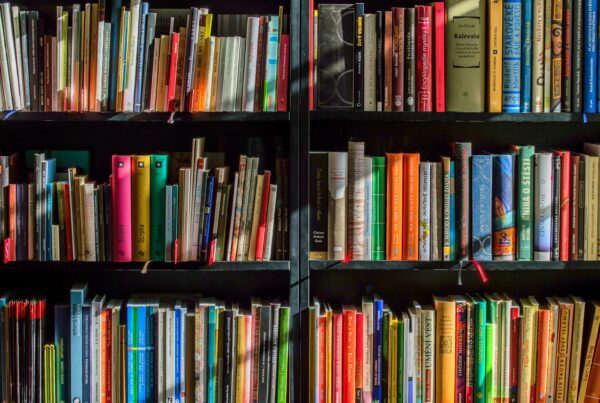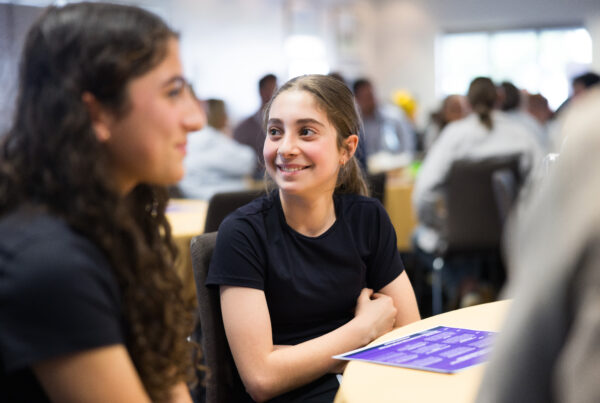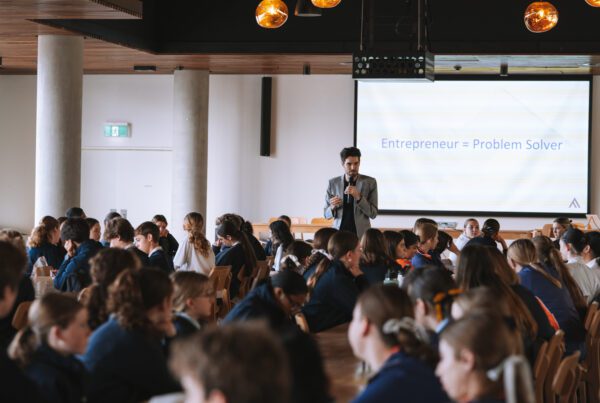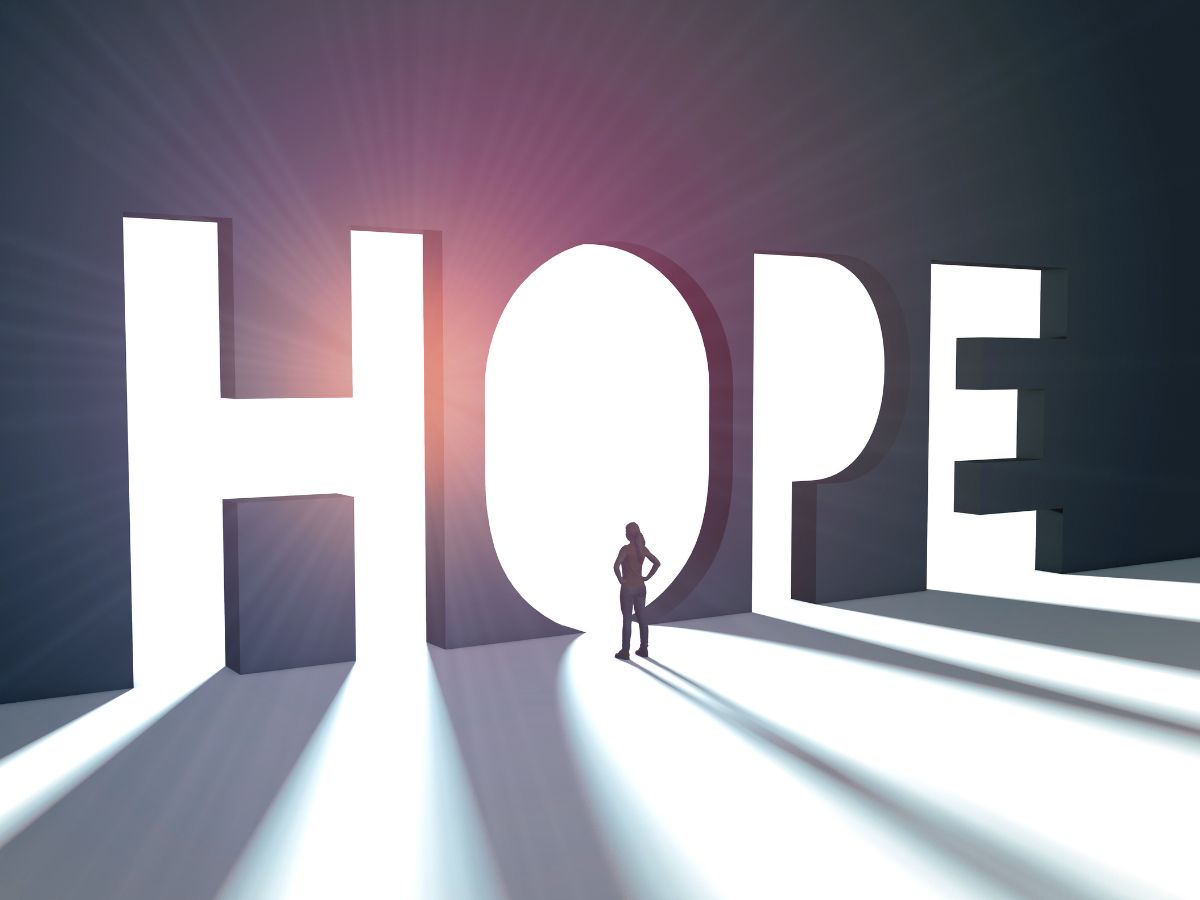
Unleashing the Hope Hunters
by Nicole Dyson, Founder & CEO, Future Anything
New Years are the cornucopia of beginnings; of ‘fresh starts’. Regardless of how the previous year played out or how much we outwardly rebel against the notion of #newyearnewme, there is a small sliver inside all of us that holds onto the hope that this next year will be better, or at least different to, the one before.
A little while back, I wrote a blog digging into the importance of the first lesson of the year.
I mentioned that at the start of each year, around Australia 3,948,811 young people (or thereabouts) walk into classrooms in varying states of enthusiasm about the year ahead.
Most are hopeful about what awaits them.
This hope is either dashed or raised in the moment their hope confronts reality.
For our young people, this occurs in every ‘first’ they experience.
The first time they walk through the school gates. Their first class. Their first lunch break. Their first assembly.
The first time they get something right. The first time they get something wrong.
In these firsts, the reality of the moment is like a hand reaching towards their hope.
If things go as we fear, the hand squeezes around their hope; choking it.
And, they judge themselves harshly for ever believing it could be different.
If things go (surprisingly) well, their hope is held. In these moments, they (and we) marvel at the moment and begin to tentatively, nervously, apprehensively believe that maybe, just maybe, this could be different.
Each time that hope is held, it grows. The default setting slowly starts to switch from expecting imminent disaster to hope hunting.
Seeing the world differently.
Hope hunters see the world differently. They know that in every challenge lies an opportunity.
How do we build a classroom of hope hunters? A school of hope hunters? A community, even a society, of hope hunters?
We either arrive at a positive classroom culture that enables our learners to see the world differently by design, or we get somewhere else entirely by accident.
Whilst personality traits and a preceding reputation will feed into the foundations of each new class, a classroom culture can be deliberately crafted by weaving activities within the fabric of your learning environment.
With a focus on building connection, and blurring the lines between play and learning, these liminal spaces in our lesson architecture should be:
- Fast. They don’t need to derail your learning. It could be a 10 minute hook to your lesson, a brain break in the middle of a lesson or a plenary to close.
- Frequent. Running Two Truths and a Lie in the first lesson for the year doesn’t tide you over for the next 39 weeks of learning. Invest in your culture and your connection with your students, and it’ll pay you dividends over and over again.
- Fun. The funner (I’m an English teacher, I can make up words), the better. And, fun for your students- not you. Research shows that the blurrier the line between learning and play, the safer our learning environments become for our students.
So where do we start?
Well, I’ve pulled together a range of activities, resources and inspiration to help get you started on the journey of building hope hunters in YOUR classroom.
TEAM BUILDING EXERCISES
School can be a lonely experience for many, and team-building exercises can help bridge that gap. Activities such as trust-building exercises, problem-solving challenges, and group competitions can help students develop a sense of camaraderie and mutual respect. These exercises also promote cooperation and communication, which are essential skills.
- HyperIsland Toolkit: This is a resource kit for anyone who wants to apply creative collaboration to unleash potential in their team or organization. It’s a collection of methods and activities, based on Hyper Island’s core methodology, that you can start using today.
- Youth Group Games: A great resource for fun, interactive games and activities that are specifically designed for youth groups, including team build exercises, icebreakers, and group challenges
- Teaching Ideas: From the UK, this site features heaps of ideas and resources organised by subject area
- Icebreakers: The classroom icebreakers featured here are enjoyable teacher-approved activities and games that address a whole host of school and classroom needs.
- 20 classroom team building activities: here’s 20 quick but detailed instruction on classroom activities that are both academically enriching and support positive social skill building and communication skills.
SERVICE LEARNING PROJECTS
Service learning projects provide students with the opportunity to give back to their community while also developing important skills such as empathy, critical thinking, and problem-solving. These projects can be tailored to the interests of the students and may include activities such as organising a charity event, volunteering at a local organisation, or creating a public service announcement campaign. Looking for ideas?
- Volunteer.gov.au: Run by the Australian Government and features volunteer opportunities, community service projects, and advocacy campaigns.
- Australian Centre for Service Learning: Supports and delivers transformative service learning within schools and communities in Australia with projects including volunteer opportunities, community service projects, and advocacy campaigns.
- Australian Council for Educational Research (ACER): Offers volunteer opportunities, community service projects, and advocacy campaigns.
- The Smith Family: Offers volunteer opportunities and community service projects that support children and families in need.
- National Youth Science Forum (NYSF): Offers opportunities to work on real-world scientific research projects and community service projects.
CLASS DEBATES
Debates are a great way to engage students and promote critical thinking and public speaking skills. Topics can be related to current events or class curriculum, and students can take on various roles such as debaters, moderators, or judges. These activities not only promote critical thinking and public speaking skills but also create a safe space for students to share their opinions and perspectives. Looking for ideas?
- ProCon.org: Presents sourced pros and cons of debatable issues, as well as a host of reference information relevant to those issues, thoroughly researched and compiled by research staff and editors. US-based, topics include current events, social issues, and educational policies.
- The Debaters Association of Victoria: The DAV is a non-profit association which exists to promote debate. It is the peak debating body in Victoria and runs large competitions for adults and for schools across Victoria. It provides training and resources for debaters, teachers and adjudicators.
- The Edvocate: This article offers 120 debate topics for secondary school students.
- Debate Central: While this site is no longer actively maintained, it contacts an archive of useful debating material and resources
GAME-BASED LEARNING
Game-based learning is a fun and interactive way to engage students and promote critical thinking and problem-solving skills. Games such as Jeopardy, Kahoot, and Quizlet Live can be used to review class material, and students can compete against each other in a fun and engaging way. Looking for ideas?
- Kahoot!: Can be used in the classroom to engage students with interactive lessons, access ready-to-play learning content by subject and grade get instant feedback from every student in the class
- Quizlet: Make big subjects easier to digest with flashcards and practice tests
- Classcraft: Offers a fantasy-themed game-based learning platform for teachers to create engaging and interactive learning experiences for students.
- BrainPOP GameUp: Offers a collection of educational games from top publishers, aligned to curriculum standards and organised by subject and grade level.
- Catapult Cards: Fun and process-driven decks of cards that take players from looking at problems around them through to pitching their own innovative, scalable and sustainable idea; one deck at a time.
STUDENT-LED DISCUSSIONS
Student-led discussions are an excellent way to promote critical thinking and student engagement. By giving students the opportunity to lead class discussions, they can share their perspectives and insights while also developing their leadership and communication skills. These activities can be centred around current events, class readings, or personal experiences and can be used to build positive classroom culture. Looking for ideas?
- NY Times: Every school day The NY Times post a new question that invites students to read a Times article and respond with their own ideas. Topics include current events, social issues, and educational policies. Over the years, they have published thousands of questions.
- The Critical Thinking Consortium: Offers a range of innovative print and digital learning and assessment resources and other educational support materials for educators, students and parents.
- The Discussion Project: Specialised professional learning courses to help you design and facilitate more engaging, inclusive, and intellectually rigorous discussion classrooms
- The Big List of Class Discussion Strategies by Jennifer Gonzales : a great blog/resource on how to ensure ALL student participate in class discussion
GRATITUDE-BUILDING ACTIVITIES
Building gratitude in classrooms can have a number of benefits for students, teachers, and the school community as a whole. Some of the key values of building gratitude in the classroom are improved mental health and wellbeing, increased positive relationships, and even greater academic achievement. Looking for ideas?
- Greater Good Science Center: From the University of California, Berkeley, The Greater Good Education Program brings “the science of a meaningful life” into the lives of education professionals and the students they serve.
- Edutopia: A free source of information, inspiration, and practical strategies for learning and teaching in pre K-12 education
- Thnx4: A gratitude journaling website that helps everyone SayThnx for the goodness in their life.
Inspired? Let’s go. Let’s create some hope hunters.
Dubious? Not sure it’ll make a difference? Maybe you’re still of the belief that one shouldn’t smile before Easter?
Let me prove you wrong.
Give me ten minutes a week. 100 minutes a term.
Taking inspiration from the resources above, choose one activity a week, or better yet, put your class into ten groups and have teams of students choose and run one ten-minute activity a week for the term.
The secret ingredient? You need to get involved.
Why invest 100 minutes of precious curriculum time?
In a world that can often feel uncertain and overwhelming, it is crucial that we empower our young people to become hope hunters. We empower them to possess the courage, determination, and resilience to chase their dreams and to make a positive impact on the world around them.
The activities above will help you- and them- get started. Together, you’ll foster a culture of creativity, innovation, and critical thinking. By providing students with diverse opportunities to explore their interests and passions. By recognising the unique strengths and potential of each and every student. By valuing and nurturing the talents of every individual.
I’d love to hear how you go, and if you’ve got other activities and resources that you use to create hope hunters in your classroom, do share them via our Enterprising Educators Network Facebook Group.
About the author: Nicole Dyson
As a teacher in the USA, UK and Australia as well as a Head of Department and Head of Year at some of Queensland’s top-performing public schools, Nicole has repeatedly led the design and implementation of whole-school changes to support future ready learning; building enterprising classrooms that place young people at the forefront of co-designing contextually relevant learning experiences.
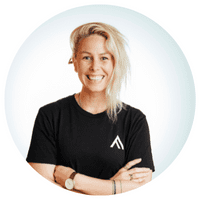
Nicole is an engaging and skilled facilitator, panellist and speaker who is a passionate advocate for equity, the future of education, and empowering young people to bend the future; one youth-led idea at a time.
Connect with Nic on LinkedIn here or Twitter here.
Future Anything offers a portfolio of student workshops, teacher professional development and in-curriculum project-based learning experiences that are building enterprising classrooms in Australia and beyond.
Find out more about our programs here.



